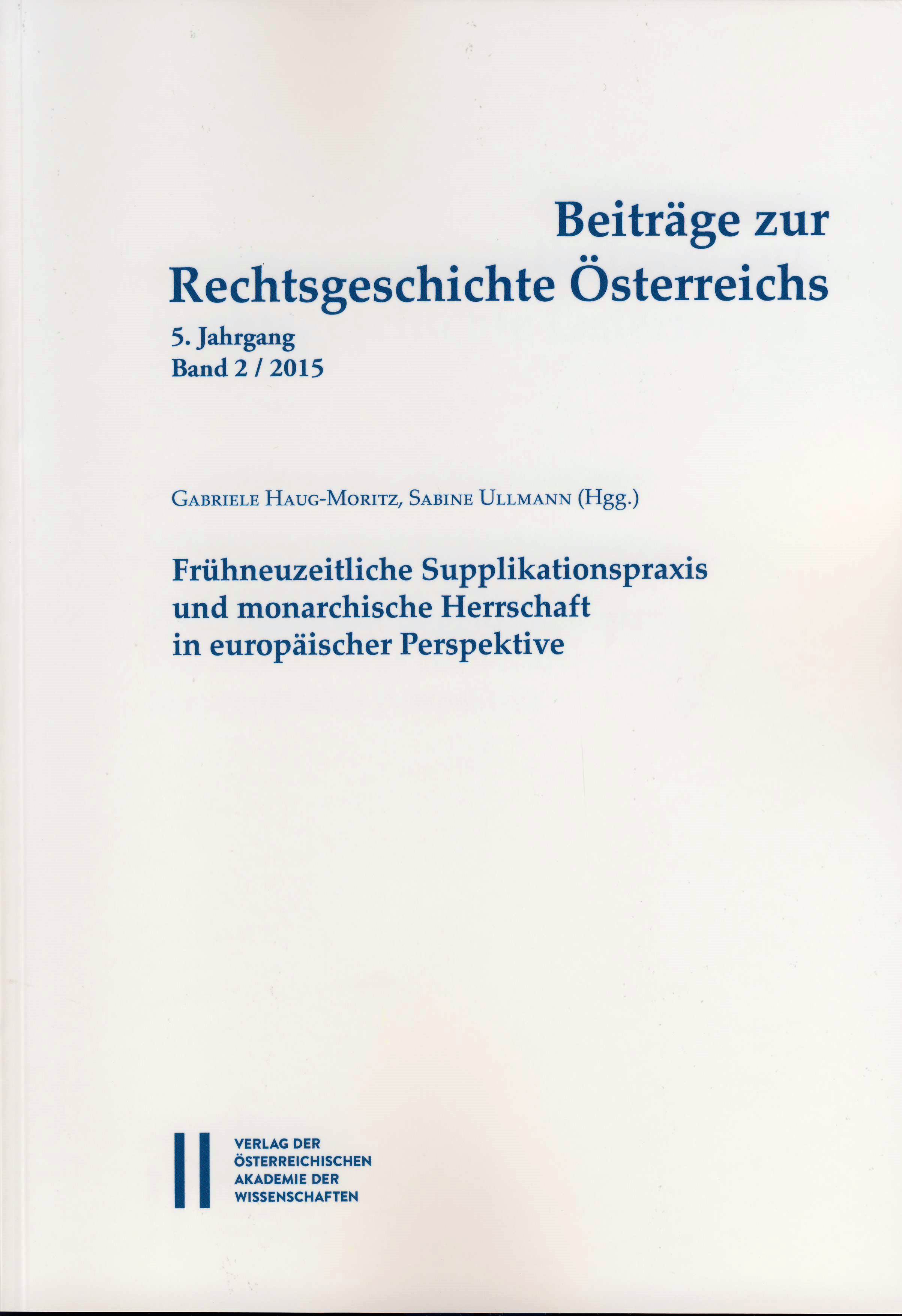
Beiträge zur Rechtsgeschichte Österreichs 2 / 2015, pp. 245-262, 2015/12/11
Frühneuzeitliche Supplikationspraxis und monarchische Herrschaft in europäischer Perspektive

During the last decades a lot of research on the Holy Roman Empire has been published. So far the history of the early modern emperors nevertheless remains an academic void. The indexing of the files of the Imperial Aulic Council, which is currently done by the Göttingen Academy of Sciences and Humanities, offers new perspectives on this important topic. Throughout the 16th, 17th and 18th centuries, the council was the most important imperial agency dealing with the affairs of the empire. It carried out functions of a supreme court and political advisory board. At the same time the Council was responsible for the administration of imperial privileges and feuds. Because of this wide area of operations the Council’s files, which today are kept by the Austrian State Archives in Vienna, form the most important archival source for the history of the Holy Roman Empire. They are crucial not only with regard to the relations between the emperors and the estates of the empire, but the role of the emperors in the everyday life of the ‘normal’ population as well. The article discusses these versatile relations and offers hints for further research.
Keywords: Göttingen Academy of Sciences and Humanities, Holy Roman Empire, emperors, feuds, privileges, Imperial Aulic Council, Austrian State Archives